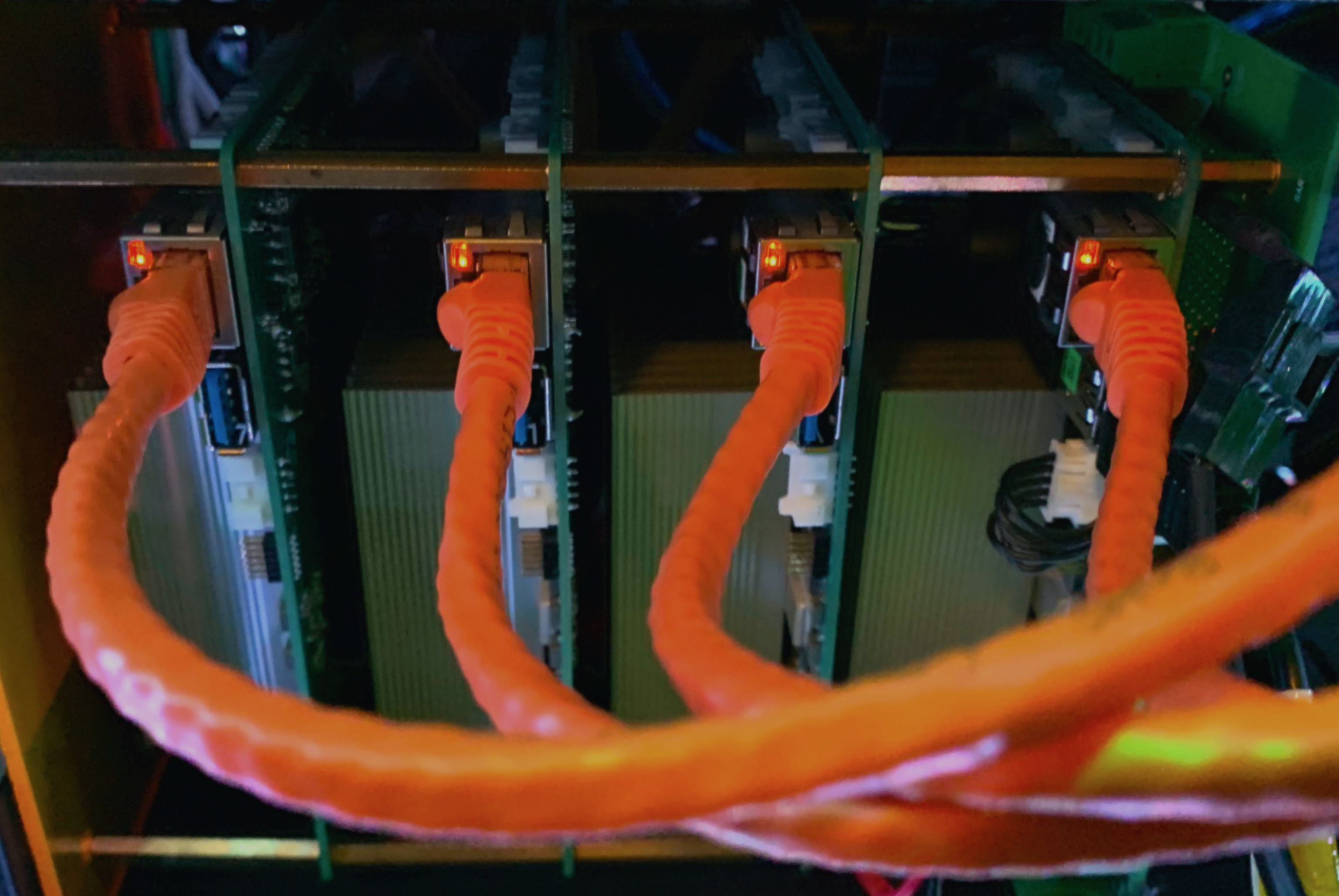Crypto Wallets on Kubernetes
- MacBook Pro (16gb ram)
- 4 x Atomic Pi (x86 Intel, 2gb ram, 32gb ssd)
- Raspberry Pi 4 NFS Server (4gb ram, 1tb ssd)
- k3s
- MetalLB
- Skaffold
- VS Code
- Prepare development environment.
- Install NFS server.
- Install k3s cluster.
- Configure MetalLB.
- Deploy crypto wallets.
- Deploy block explorers.*
- Deploy web wallets.*
* = Incomplete or Not Started
A. Configure Atomic Pi's for k3s.
- OS: Atomic Pi Pre-loaded - https://www.digital-loggers.com/api_faqs.html#OriginalOS
- Give each atomic pi a distinct hostname
sudo nano /etc/hostname- Disable Swap
- Set Static IP
sudo nano /etc/dhcpcd.conf- Add the following to the end of file, editing to fit your needs.
interface eth0
static ip_address=192.168.0.87/24
static routers=192.168.0.1
statis domain_name_servers=75.75.75.75
- https://raspberrypi.stackexchange.com/questions/68477/static-ip-configuration-in-dhcpcd-conf-ignored
B. Add host entries to /user/username/.ssh/config.
- Example ssh config file located on MacBook Pro:
# example atomic pi ssh config
# example path: /user/username/.ssh/config
Host atomic
HostName atomic.local
Port 22
User atomicpi
IdentityFile ~/.ssh/id_openvpn
Host atomic2
HostName atomic2.local
Port 22
User atomicpi
IdentityFile ~/.ssh/id_openvpn
Host atomic3
HostName atomic3.local
Port 22
User atomicpi
IdentityFile ~/.ssh/id_openvpn
Host atomic4
HostName atomic4.local
Port 22
User atomicpi
IdentityFile ~/.ssh/id_rsa
C. Install Ansible and skaffold on MacBook Pro
brew install ansible skaffold- More Atomic Pi resources
A. Update Raspberry Pi 4 and upgrade.
sudo apt update && sudo apt upgrade -yB. Install the NFS server packages.
sudo apt-get install nfs-kernel-server portmap nfs-commonC. Create the NFS folder for sharing.
export MOUNT=/media
mkdir -p $MOUNT/nfs && \
sudo chmod -R 777 $MOUNT/nfs
sudo chown nobody:nogroup $MOUNT/nfsD. Add share folder to /etc/exports.
sudo echo -e "$MOUNT/nfs 192.168.1.0/24(rw,sync,no_subtree_check,insecure,no_root_squash)" >> /etc/exportsE. Reset exports.
sudo exportfs -aF. Restart the NFS service.
sudo systemctl restart nfs-kernel-serverA. Use Ansible playbook.
- Download the latest playbook
git clone https://github.com/boyroywax/crypto-k8sB. Configure the playbook.
- Add your master and nodes to
hosts.ini, use the Host name from the ssh config file.
# ansible-k3s-atomicpi/hosts.ini
[master]
atomic
[node]
atomic2
atomic3
atomic4
[k3s-cluster:children]
master
node
- Edit
group_vars/all.yml. Pay attention to the IP of your master.
Full_clean_installdeletes all previous k3s files for a fresh install.
The file is commented with the variables description.
C. Run the Ansible playbook. *
makeD. K3s config file located at ansible-k3s-atomic/files/k3s.yml
export KUBECONFIG=$PWD/ansible-k3s-atomic/files/k3s.yml
kubectl get nodes # test by checking for nodesA. Edit the IP address range in config.yaml.
B. Run the run_metal.sh script.
./run_metal.shA. Deploy with scripts.
- Create
cryptonamespace.
kubectl create ns crypto- Run
deploy_all.shscript.
./deploy_all.sh- Clean Up: Remove crypto wallets.
./delete_all.sh- Getinfo from all the running wallets.
./getinfo_all.shB. Deploy with skaffold.
- Individually start a wallet
cd wallet-docker/coinname-wallet-docker
skaffold run --tailC. Deploy with Helm - NOT COMPLETE
